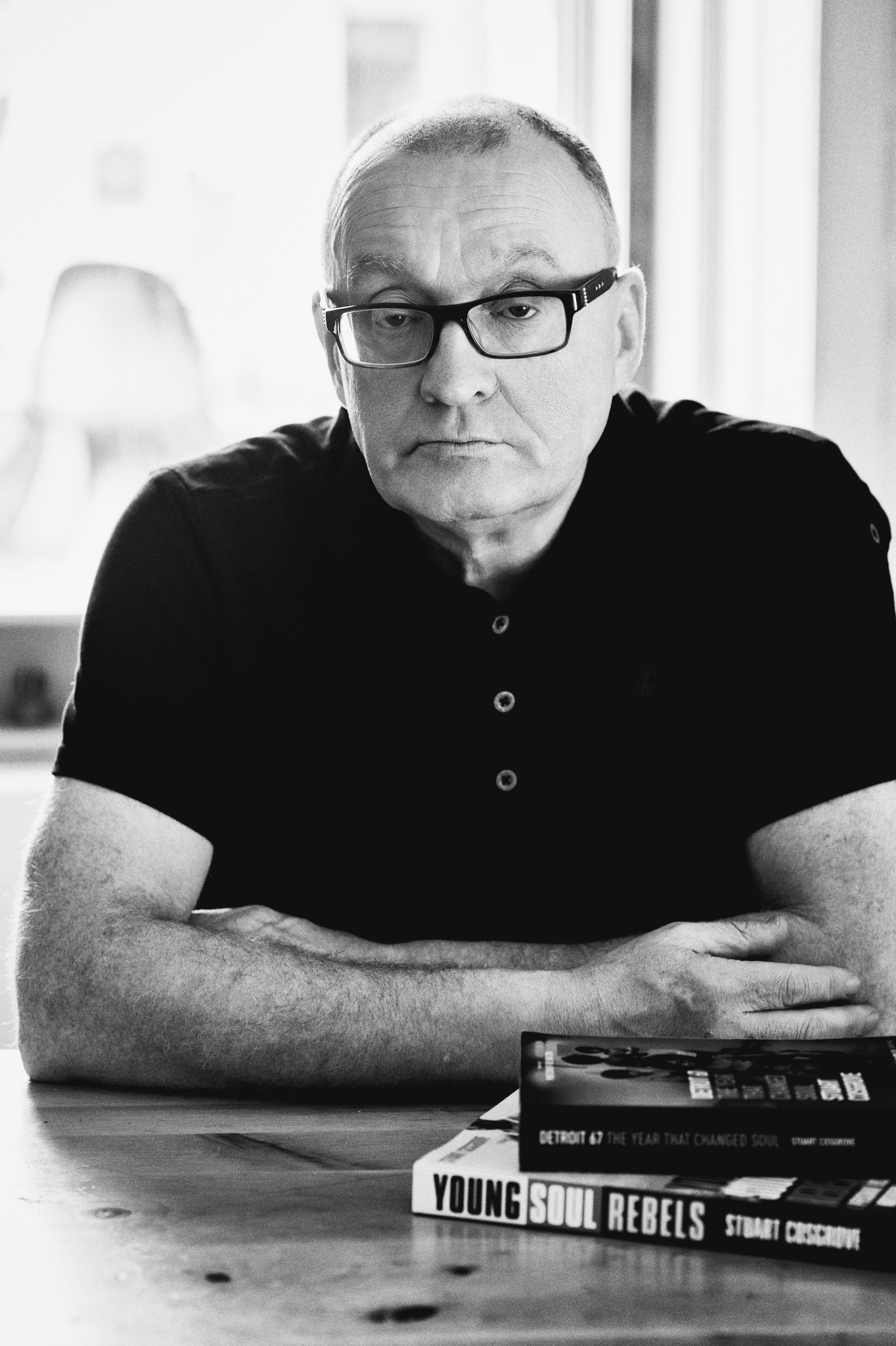Musical Tribalism – A Moral Lesson: Guest blog by Stuart Cosgrove
One of the great strengths and nagging weaknesses of my life as a music writer has been a rigid tribalism. When I first fell in love with soul music as a teenager in Perth, it was the beginning of a lifetime love-affair that has never waned. Soul music is my abiding passion and the sound of sixties soul has accompanied me at almost all the meaningful moments of my life.
But there is something limiting about all-consuming dedication. It can close your mind to other forms of music and control your responses to even the simplest shifts of fashion. I grew up in the northern soul scene, a musical Taliban, that groomed young teenagers and then converted them to a rigid ideology. Vinyl was god, rarity was a dogma and the citadels of soul were in the big African American cities of Detroit, Chicago and Pittsburgh. There was even a Mecca, to pray to – the Highland Room at Blackpool Mecca, one of the most famous clubs in the story of northern soul.
For three years, I wrote for soul fanzines, then earned a hint of a living as a writer for Black Echoes, where was allowed to indulge my passions, before moving to the NME as Media Editor where I became the in-house proselytiser for black music, the so-called ‘hip-hop Hitler’. It was in the offices of NME where I first admitted to other forms of music, slowly and with nervous calculation.

Photograph by Kris Kesiak
My colleague Sean O’Hagan, a brilliant writer from Armagh talked me into joining a small clique known as the Celtic Soul Brothers, a term borrowed from Dexy’s Midnight Runners and the Emerald Express. Sean had identified office-wide ignorance of Celtic cities with thriving music scenes – Glasgow, Belfast, and Dublin – those bandit lands far from London. We agreed a pact. I would vocally back Irish bands and in return he would weigh-in behind the Scots. It was this hidden coalition that took The Undertones, That Petrol Emotion, The Pogues, the Proclaimers, and Primal Scream to the front pages of NME. It was a new kind of tribalism, one I knew well from following football, but it had a delimiting effect on my taste – I was still prone to dismiss anything that didn’t conform to my narrow obsessions – soul and Scotland.
Of course, there were huge chunks of pop music that I had innately absorbed – The Kinks, The Small Faces, Bowie, T. Rex, Abba and endless passing indie fads, but the certainties remained intact and I fobbed off any music as ‘ok but not soul’.
Something strange happened
Then something strange happened. I married a woman who had bafflingly poor musical taste. We first met at an NME night when she was hanging out with Paul Weller and was then a peroxide punk and a member of the worst Asian indie band in history. Thank god for Cornershop’s ‘Brimful of Asha on 45’ as soon as the Asian indie scene had a Number 1 hit, she conceded that her pop career was kaput.
We had a baby boy and that challenged me in new ways. Suddenly, I had to accept that ‘The Wheels on the Bus’ and ‘If You’re Happy and You Know It’ were being played on heavy rotation and they were neither rare nor soul. At wee Jack’s christening we booked a friend, the French chanson singer Christine Bovill to entertain the guests. She was remarkable. Christine took an enraptured audience on a journey through the arrondisements of Paris paying tribute to the great Edith Piaf. My tastes expanded further.
Memphis or Nashville?
Then at my workplace at Channel 4, I had recently employed a new office manager from Glasgow’s Southside. Within days she posed a great philosophical question – which is the greatest mid-southern city of music, Memphis or Nashville? This is the kind of question that should be central to the school curriculum. I inevitably favoured Memphis and have since written the second part of my soul trilogy ‘Memphis 68: The Tragedy of Southern Soul,’ which won the Penderyn Prize as Music Book of the Year. Meanwhile my co-worker (what a wanky term) had outed herself as Martha L Healy, one of Scotland’s best young American singers. She has since taken time out from Channel 4 to study song-writing under the eminent country and western song-writer Gretchen Peters, and has recorded her debut album in Nashville.
Our neighbours have brought different styles into our lives. Bob Cairns a near neighbour is a virtuoso violinist and when I was asked to assemble a fundraiser on behalf of Jacks’ school he agreed to recruit the services of the maestro accordionist Djordje Gajic and the Glesci Quartet.

By the time the fundraiser was ready to promote I found myself in the horns of a new dilemma, venturing on to social media and denouncing my past, by promoting the virtues of musical diversity, a curse I had avoided for most of my adult life.
So I will keep this short – they are all stunningly talented, they are playing together to support Jack’s school, St Denis’ Primary School to enrich its musical teaching beyond the core curriculum. On the night, you will hear French chanson, new Americana and ear-defying accordions. I will be there to introduce them all and then I will quietly sneak home to my prejudices and listen to Detroit soul classics, thankful that my journey into musical dexterity is over. Come along you’ll love it (and I’ll pretend).
East Winds is a Fundraiser for St Denis’s Primary School featuring Christine Bovill, Martha L . Healy and Djordge Gajic and the Gleschi Quartet. It’s on at St Luke’s Calton, 17 Bain Street Glasgow G40 2JZ. Tuesday 19th June 2018 at 19:30 Tickets £10. Available from the school or via Ticketweb. https://bit.ly/2Iehw2w
